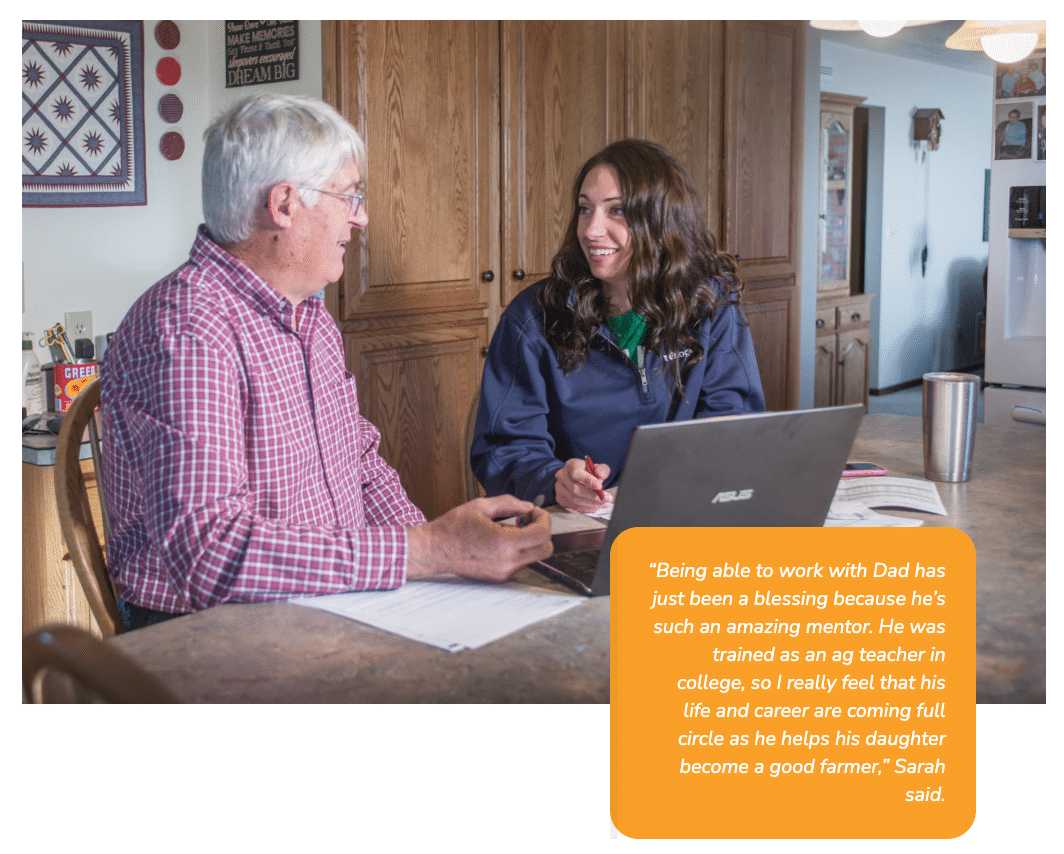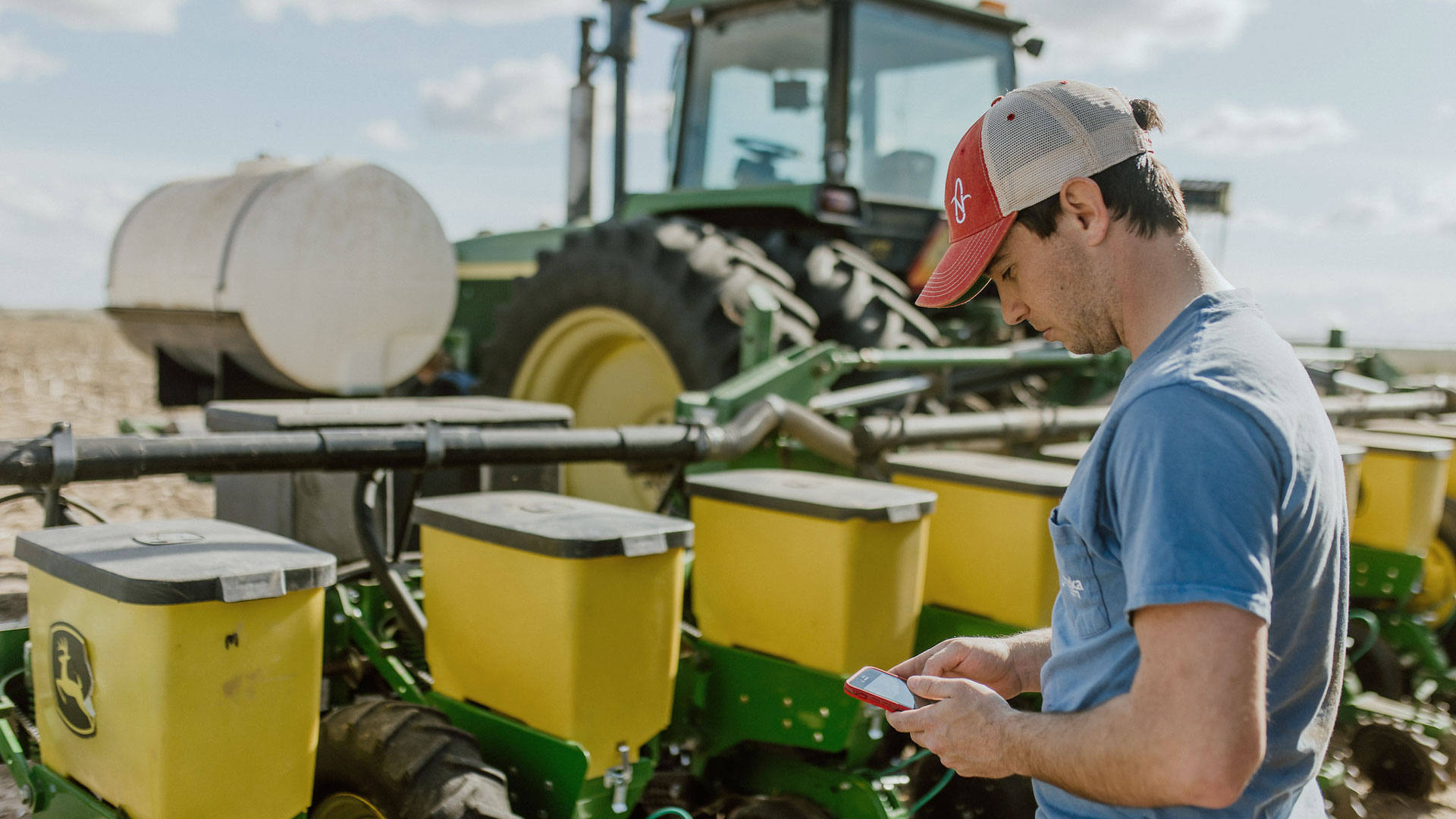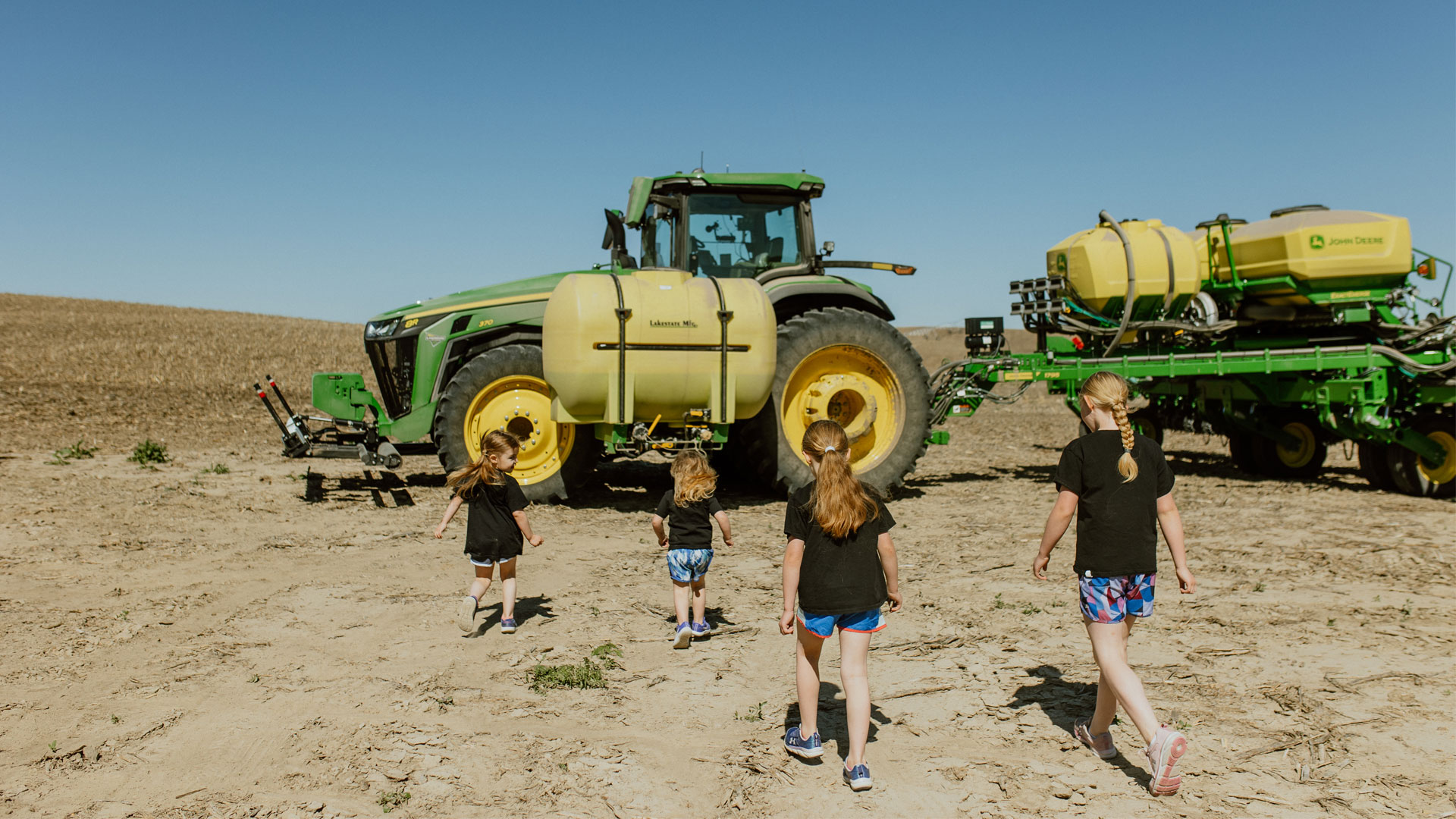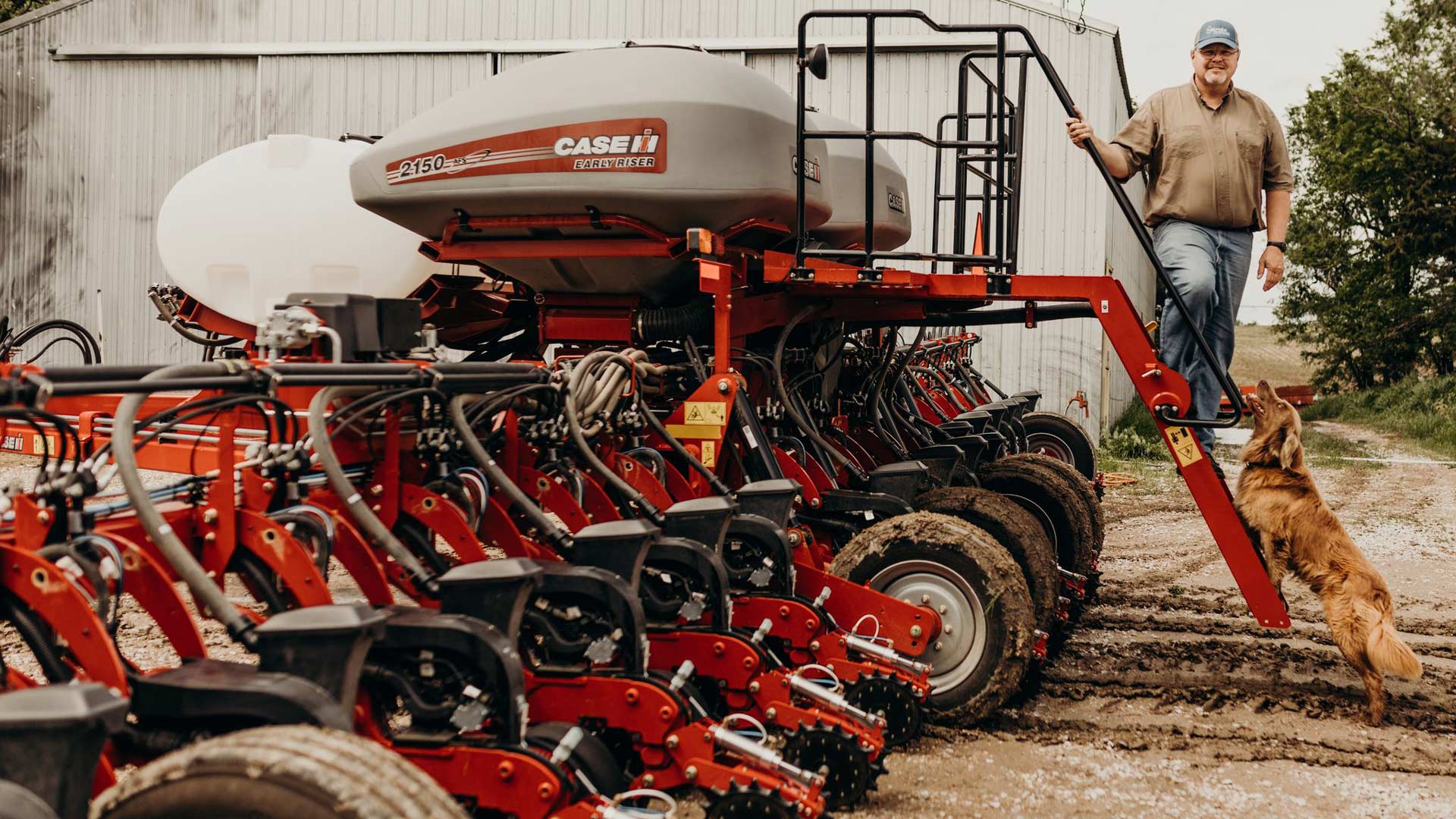Sarah Greer has always had farming in her blood.
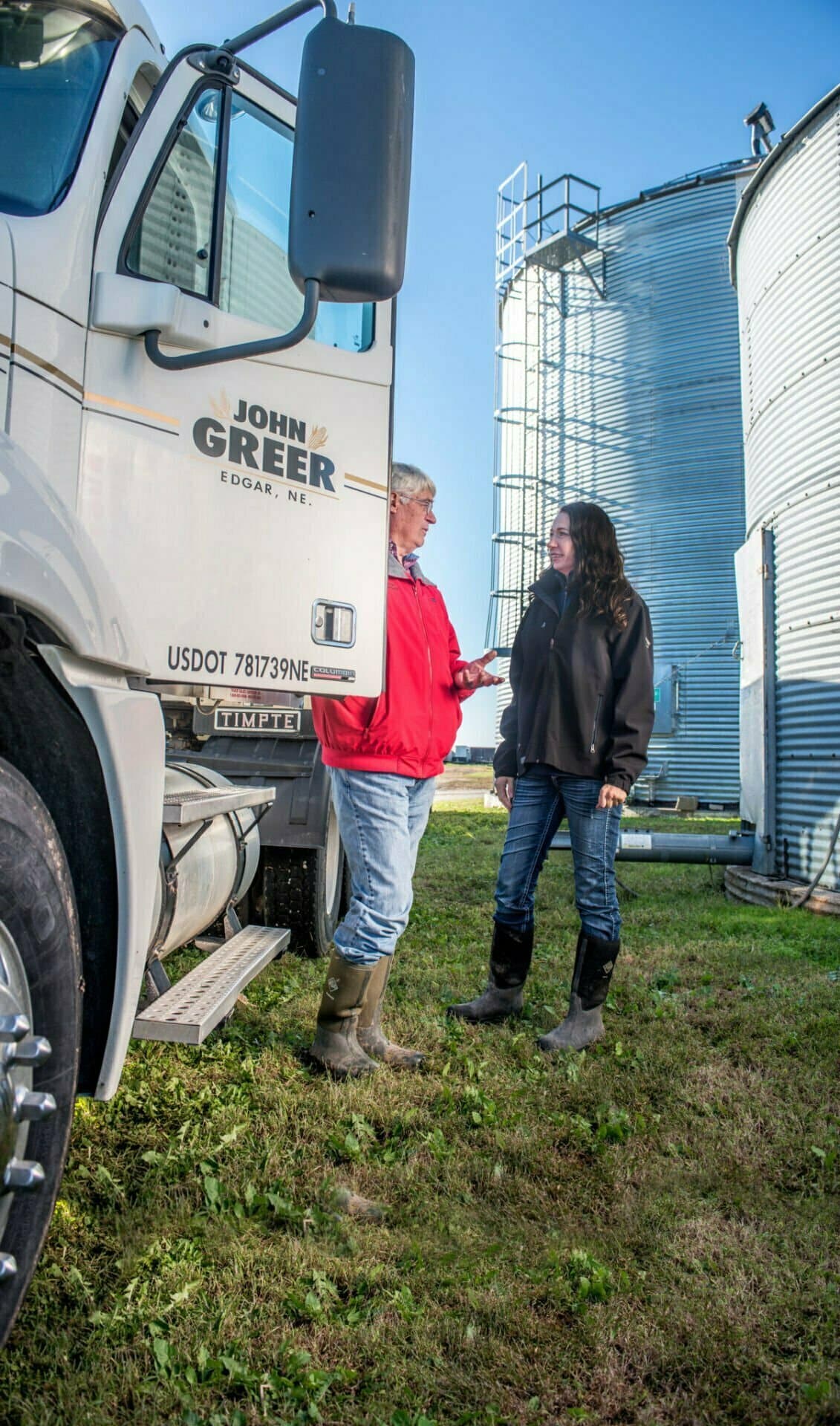
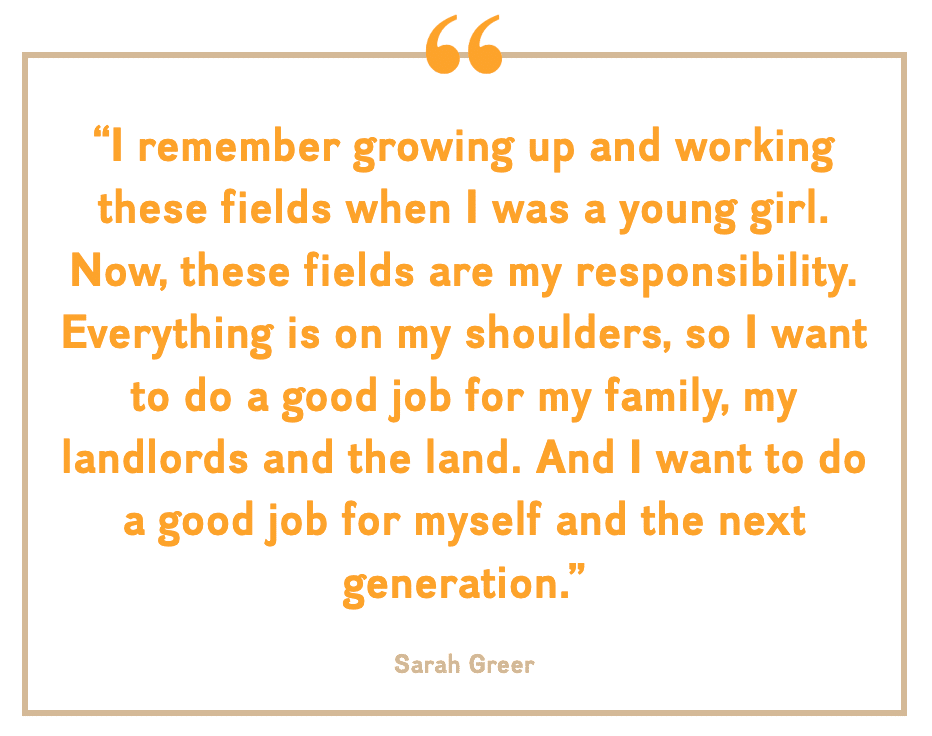
Sarah said running a farm is a viable career option for a young woman. “While there is a physical labor aspect to it, it’s still a business with balance sheets, profit and loss statements and management decisions,” she said. “I would encourage any woman who wants to come back and take over the farm to do so. If you think you can do it, you absolutely 100 percent can.”
